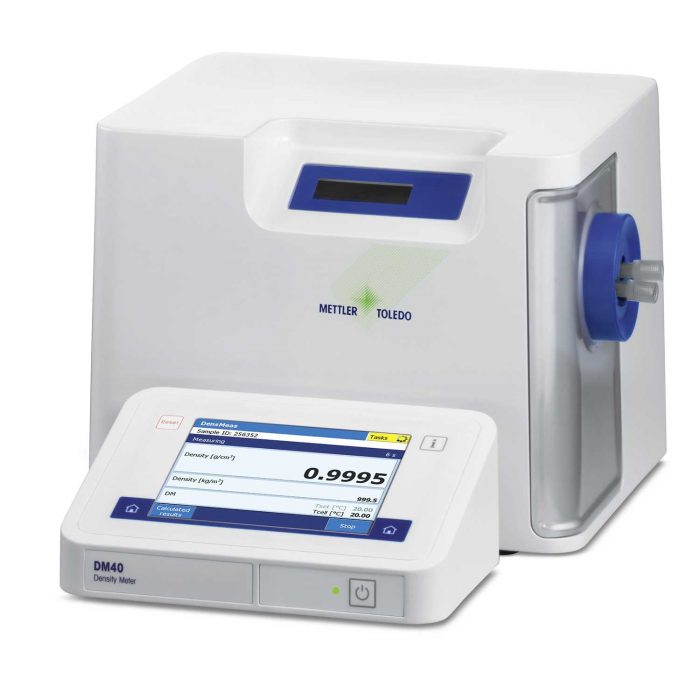Density and Specific Gravity
Density is a measure of mass per unit volume. It is a fundamental physical property and can be used together with other properties to characterise lubricating oils and fuels.

Specific Gravity or relative density is the ratio of the density of a substance to the density of a given reference material (typically that of water). API Gravity is another way to express density of a fluid in relation to water.
Density of fluids changes with temperature, so it is important to specify the temperature requirements when requesting density measurement from the lab.
The density of most oils ranges between 700 and 950 kilograms per cubic meter (kg/m3). Water has a density of 1,000 kg/m3. This means that most oils will float on water, however some oil formulations (such as Group IV oils and other more exotic fluids) can have density that is higher than that of water, causing them to sink.
Reasons to measure density:
Determination of the density or relative density of petroleum and its products is necessary for the conversion of measured volumes to volumes at the standard temperature of 15oC.
Most systems are designed to pump fluids of a specific density – if density begins to change the efficiency of the pump begins to change as well.
Fluid degradation through oxidation, contamination with particulates, other fluids or gases can all affect density.
Measuring the density of a lubricant or fuel may be helpful to ensure that it matches the product specified and remains in acceptable condition for further use. It is also an essential step in determining fluid compatibility.
There are a number of ways to measure density – at STS we use an oscillating tube density meter pictured above (test method ASTM D4052).
